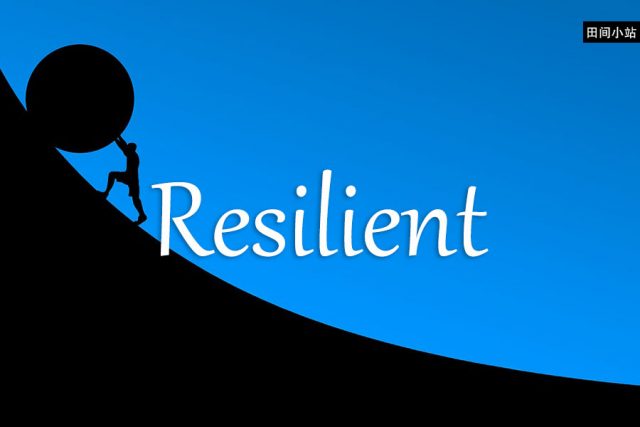本文经授权转载自微信公众号:田间小站

SAT GRE
外刊例句
- The way to make supply chains more resilient is not to domesticate them, which concentrates risk and forfeits economies of scale, but to diversify them.
要让供应链更能抵抗风险,不应该将它迁回国内,因为这只会让风险集中并丧失规模经济;供应链多元化才是出路。
——《经济学人》 - The national rig count had remained surprisingly resilient over recent months even as oil prices dropped by more than 50 percent since June, and it still tops the count of a year ago as domestic production continues to surge.
尽管油价自6月以来跌幅超过50%,但全国钻机数量在最近几个月里仍保持惊人的韧性,而且随着国内产量持续飙升,该数量仍然高于一年前。
——《经济学人》
基本释义
[adjective] (of a substance or object) able to recoil or spring back into shape after bending, stretching, or being compressed
[形容词] (指物质或物体)在弯曲、拉伸或压缩后能够弹回原形的
深入解读
Resilient 是一个《经济学人》中经常会出现的单词。该词源自拉丁语 resilientem (倾向于跳回或弹回),17世纪40年代进入英语后最初用来表示“弹回的”,即弹回到原来的位置的。
这个概念到了17世纪70年代后, 开始发展出现在的主要含义指物质或物体“有弹性的、有回弹力的、能复原的”,即在弯曲、拉伸或压缩后能够弹回原形的,也就意味着能够承受冲击而不发生永久形变或破裂,比如:
- 他猛力把高弹性橡胶球击过网去时胳膊快速一晃,令人眼花缭乱。
His arm was a rapid blur of movement as he whacked the highly resilient rubber ball over the net.
再到了19世纪30年代后, resilient 开始进一步用来喻指人或动物“可迅速恢复的、适应力强的”,即能够承受或容易适应困难的条件,或者能够迅速从不幸、变化中恢复到常态,比如:
- 坚韧的人在逆境面前不会放弃。
Resilient people do not give up in the face of adversity. - 她是个适应力强的女孩——她不会长时间沉湎于自己的悲伤中。
She's a resilient girl - she won't wallow in her own grief for long.
说到这里,小站(微信公众号:田间小站)的老铁们不难想起与 resilient 对应的名词 resilience (还原能力、弹力;快速恢复的能力、适应力)来,后者在 好书推荐 | 暂时遇挫,强烈推荐你看看这本书 所推好书的书名中就有出现。
权威用例
在飞逝的时光里,我们看到的、感悟到的中国,是一个坚韧不拔、欣欣向荣的中国。这里有可亲可敬的人民,有日新月异的发展,有赓续传承的事业。
In the passage of time, we have seen and experienced a resilient and dynamic China, a country with its amicable and respectable people, a country developing rapidly with each passing day, and a country making continual progress in all its undertakings.
出自习主席2022年新年贺词。
同近义词
- supple: bending and moving easily and gracefully; flexible
- elastic: (of an object or material) able to resume its normal shape spontaneously after contraction, dilatation, or distortion
- springy: springing back quickly when squeezed or stretched; elastic
